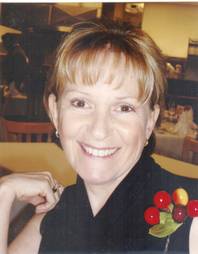Thursday, Aug. 28, 2008 | midnight

Stefani Evans
What do political activists and genealogists have in common?
Activists, no matter their cause, create records that genealogists can utilize. Why would genealogists care about the records generated by political or social activists? Sometimes folks have personal reasons for pursuing a cause. However, even when their motives are more general, the cause they choose and the records they generate reveal much about the individuals and the times in which they lived.
Activists make news as they defy the law, testify before Congress, file lawsuits or give interviews. As they do so, they reveal their passions and the events of their lives. Genealogists can pursue the news items, testimonies, lawsuits, court actions and interviews to learn more about their research target and his or her society. Two activist women, joined by marriage and separated by time, provide examples.
Rhoda Rogers (1799-1873) and her husband, Elias DeGarmo (1788-1876), were residents of Gates, near Rochester, N.Y., in the mid-1800s. Rhoda and Elias lived on Brooks Avenue, next door to Lucy and Daniel Anthony and their two adult daughters, Mary S. and Susan B. Like the Anthonys, the DeGarmos were activist anti-slavery Quakers, whose home was a busy Underground Railroad stop. As founding members of the Western New York Anti-Slavery Society, Rhoda and Susan generated headlines. With Elizabeth Cady Stanton and Susan B. Anthony, DeGarmo's leadership of the Woman's State Temperance Society also garnered press. However, DeGarmo drew the most ink when she and 14 other women defied Federal law in 1872 and registered to vote and cast their ballots for president.
The highly publicized arrest of DeGarmo, Anthony and the other women who voted illuminated DeGarmo's cause. Anthony, in a Nov. 5, 1872, letter to Elizabeth Cady Stanton, wrote, ". . . all my three sisters voted — Roda [sic] De Garmo too — Amy Post was rejected & she will immediately bring action . . . ." Anthony continued, "The Democratic paper is out against us strong . . . ." The Rochester Democrat and Chronicle, the "Democratic" newspaper so opposed to the radical women, provided excellent press, as did national publications. The (Newburgh, N.Y.) Ledger wrote, "The fourteen associates, who voted with Miss Anthony, have recently been arraigned, and required to give bonds of $400, for their recognisance [sic] to appear at Canandigua in June. Mrs. DeGarmo, a venerable looking lady, replied with the rest 'not guilty,' adding with emphasis, that she had done only what she had a perfect right to do."
DeGarmo's 1872 will echoes her convictions: "My Estate consists of an equal undivided half of the Farm of Fifty acres in the Town of Gates County of Monroe whereon untill [sic] of late we have resided, and an equal undivided half of all our personal Property, moneys notes and accounts of every description. My Husband, Elias De Garmo [sic] owning the other half, each one holding the Title or Deed of an equal undivided half of the farm in our own name and so Recorded in County Records. The notes and moneys are held in the name of Elias De Garmo but are owned equally by both each our having an equal share in them and undivided, each our using according to the need of either." Although she never saw the results, Rhoda DeGarmo's efforts aided the cause of women's suffrage.
Rhoda's sister-in-law Elizabeth was Alice Broudy's ancestor. Mrs. Broudy's numerous Congressional testimonies as legislative director of the National Association of Atomic Veterans (NAAV) reveal her cause and her history. Her husband, Charles Broudy, was a United States Marine Corps pilot who died in 1977 after he attended a radiological school in 1948 and witnessed three above-ground nuclear tests at Yucca Flats in 1956 and 1957. When he applied for a service-connected disability for the lymphoma that eventually killed him, the Veteran's Administration denied his application. His widow continues to pursue his claim in court, in Congress and via the media.
The History Channel chronicled Broudy and her quest in "History Undercover: Declassified: Human Experimentation," Jan. 8, 2000. In a May 28, 2000, radio interview by Mike McCormick on KEXP FM in Seattle, (http://216.162.217.3/audio.html), Mrs. Broudy discusses her husband, her background, and her cause. With each interview, more details emerge.
Three lawsuits generated press throughout the United States, including Las Vegas, as well as in academic journals and studies. Broudy's legislative, judicial and media efforts resulted in passage of H.R. 1811, the Radiation-Exposed Veterans Compensation Act of 1988, and the Veterans Radiation Exposure Amendments of 1992, Public Law 102-578. Each item furthers a researcher's knowledge of Pat Broudy, my mother, and her 30-year pursuit of my father's veteran's benefits.
Stefani Evans is a board-certified genealogist and a volunteer at the Regional Family History Center. She can be reached c/o the Home News, 2360 Corporate Circle, Third Floor, Henderson, NV 89074 or [email protected].

Join the Discussion:
Check this out for a full explanation of our conversion to the LiveFyre commenting system and instructions on how to sign up for an account.
Full comments policy